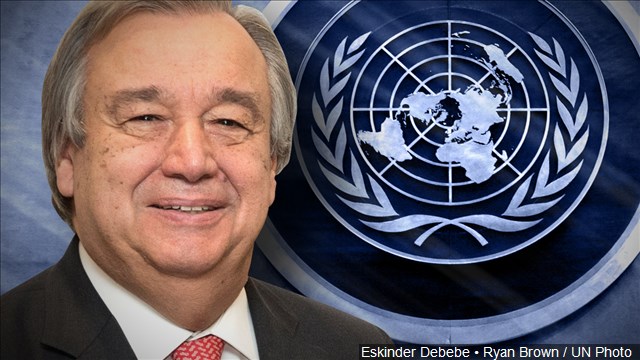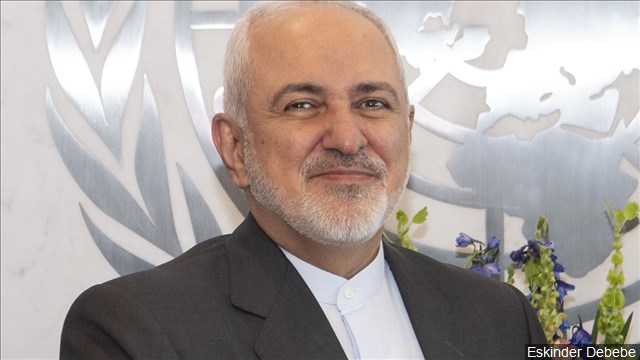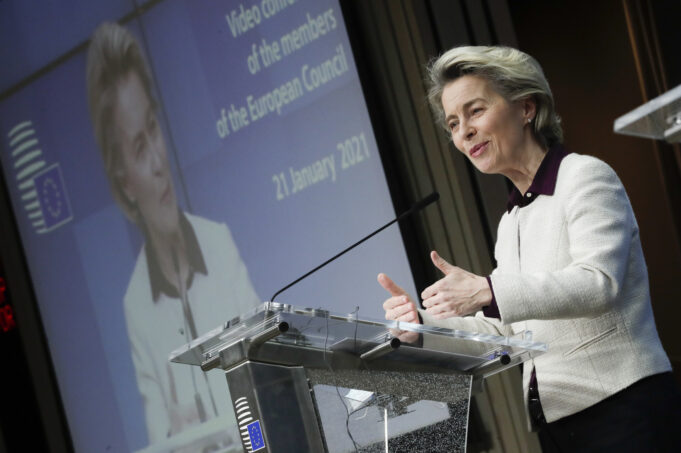The world watched the power transfer and swearing in of the 46th United States president, Joseph Biden and Vice-President Kamala Harris, the first woman, Black and South Asian person to hold the post. Beyond the pomp and circumstance that accompanied the Jan. 20 inauguration, it was limited by the coronavirus pestilence and a heightened security lockdown of Washington, D.C., since a mostly White far-right wing insurrection at the Capitol two weeks before.
The world was observing to see if “America was back,” which President Biden pledged his administration would represent. “My message to those beyond our borders: America has been tested and we’ve come out stronger for it,” said Mr. Biden during his inauguration speech.
“We will repair our alliances and engage with the world once again. Not to meet yesterday’s challenges, but today’s and tomorrow’s challenges. And we’ll lead, not merely by the example of our power, but by the power of our example,” he said.
At the U.S. Capitol where he stood delivering his message, the same international community witnessed an attack on Jan. 6 attempting to disrupt the democratic process of confirming his presidential victory. Some characterized the violence as a modern American Civil War, largely blamed on rhetoric and instigation of former President Donald Trump, who lost his reelection bid.
The attack, combined with four years of contentious foreign policies from the Trump administration, left world leaders with mixed feelings and controversy concerning U.S. stature on the global stage. Some expressed hope, others caution regarding the new administration. Traditional allies like Canada, Britain, France, Germany, Saudi Arabia, and Israel, sent messages of optimism, with some describing the change as a “good day for democracy.”

Others like China, Russia and Iran issued cautious embraces. China’s Foreign Ministry urged the new administration to “uphold the spirit of non-conflict, and non-confrontation” and work with Beijing in, “mutual respect,” and a “win-win cooperation” for both powers. China is America’s closest economic competitor, followed by the European Union.
In Tehran, where debilitating sanctions and hostility with Washington defined relations, they said the onus is on the U.S. to change. “The new U.S. administration has a fundamental choice to make,” said, Iranian Foreign Minister Mohammad Javad Zarif in a Jan. 22 tweet.
“It can embrace the failed policies of its predecessor and continue down the path of contempt for international cooperation and international law … or it can reject failed assumptions and seek peace,” he reasoned.
The European Union sees the U.S. leadership change as an opportunity for Europe to “strengthen EU-U.S. ties” and tackle “common challenges and threats” to the democratic system.
“Europe has a friend in the White House,” EU Commission President Usula von der Leyen told its parliament. “This new dawn in America is the moment we have been waiting for, for so long,” she added.

The EU released a statement following a Jan. 20 council session that also expressed caution about fully embracing America as a global leader. “Today is an opportunity to rejuvenate our transatlantic relationship, which has greatly suffered in the last four years,” said Charles Michel, the EU council president.
During this time the world has grown more complex, less stable and less predictable. “More than ever before, this requires us Europeans to take our fate firmly in our own hands to defend our interests and promote our values,” said Mr. Michel.
He said together the U.S. and EU must stand as the bedrock for a rules-based global order, working for peace, security, prosperity, freedom, human rights, and gender equality.
However, friend or foe, the U.S. leadership shift comes amid a time when America’s loss of friendship worldwide is evident, and her reputation has reached a new low. Some see it as the unraveling of a once great nation that was a long time in the making.
“The former Trump administration exposed the dirty underbelly of American domestic and foreign policy,” explained Dr. Abdul Haleem Muhammad, host of Connect the Dots Radio show on KPFT in Houston, and the Southwest regional representative of the Nation of Islam.
“If America is to regain any of her credibility in global affairs, she must fully exhibit what Mr. Biden mentioned in his inaugural address; to lead by example,” said Dr. Muhammad.
Mr. Biden recapturing America’s trust globally will be a challenge, Julie Norman, a security analyst at the University College London told Voice of America.
“He’s just going to face a challenge of just resetting U.S. relations on the global scene. That means restoring a lot of relationships with allies, re-engaging with multilateral bodies and international institutions,” said Ms. Norman.
On his first day Mr. Biden signed 17 presidential decrees by Executive Order. He inked the U.S. rejoining the Paris Climate Accords; the immediate halting of funding and wall construction at the U.S.-Mexico border; rejoining the World Health Organization and cancelling the infamous “Muslim Travel Ban” that curtailed immigrants from Muslim countries and some African countries from easily entering America. All reversals of Trump era policies. The Council on American-Islamic Relations (CAIR), the nation’s largest Muslim civil rights and advocacy organization, welcomed the decision.
“We commend President Biden for immediately moving to repeal the Muslim ban and the African ban which we think is a first step towards undoing anti-Muslim and anti-immigrant policies that the previous administration put forth,” said Mohammed Ibrahim, deputy director of CAIR-Minnesota.
Mr. Ibrahim told The Final Call, ending the measure “signifies that this might be the end of the continuation of xenophobic and racist policies” that divided families intercontinentally, and crippled America’s image abroad as a nation of inclusivity.
He said, the next step is passage of the “No Ban Act” where no future president can impose such bans again. The group also called on the Biden administration to end national security overreach which allows unconstitutional measures like the Terrorist Screening Database, commonly known as the “terrorism watchlist,” a tool for targeted harassment and extrajudicial actions against people. Close the U.S. military prison at Guantanamo Bay, Cuba and ensure detainees already cleared for release are repatriated, and those remaining in U.S. custody are provided due process.
Mr. Biden’s day-one executive orders are seen as signals of Washington returning to multilateralism versus the “America first” posture of Mr. Trump.
In a statement, United Nations Secretary-General Antonio Guterres said, with the U.S. back in the Paris Agreement—signed by 194 nations in 2015—it’s a new era of leadership towards accelerating climate action.
“I warmly welcome President Biden’s steps to re-enter the Paris Agreement on Climate Change and join the growing coalition of governments … taking ambitious action to confront the climate crisis,” said Mr. Guterres.
But despite the optimistic expectations of the U.S. “under new management” questions remain whether America can rise above the damage of the previous four years and its history of imperialism and global meddling.
Dr. Muhammad also sees the dilemma the new administration faces is coming to power at a time when America is in decline and under Divine chastisement for errant foreign policy, and domestic policies that ill effected Blacks, Native Americans, as well as poor Whites.
“America can only succeed and survive if she listens to the man of God in our midst, the Honorable Minister Louis Farrakhan,” said Dr. Muhammad. Minister Farrakhan has warned successive administrations concerning America’s arrogant global posture.
It remains to be seen if America’s new leadership will represent a promised change.
“America must take off her royal robes, sit in the dust, humble herself … repent and atone,” said Dr. Muhammad. —Brian E. Muhammad, Staff Writer













